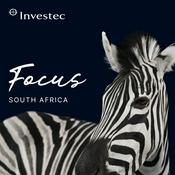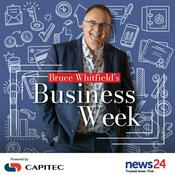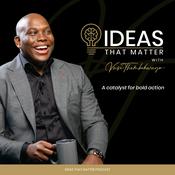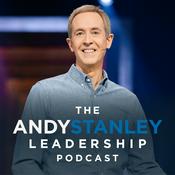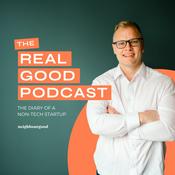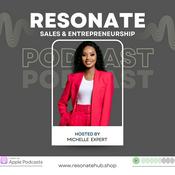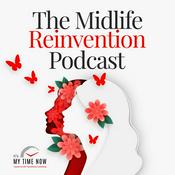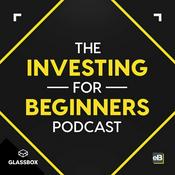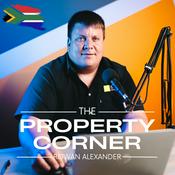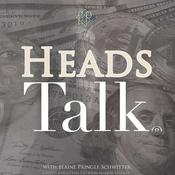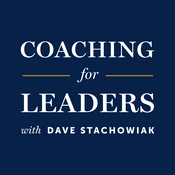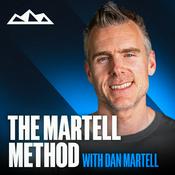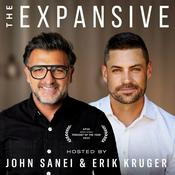320 episodes
- In this week's episode of the All Things Sustainable podcast, we bring you coverage of S&P Global Energy's Global Carbon Markets Conference, which took place in Barcelona, Spain in December 2025.
Nature was a major theme at the event, and topics of discussion included how carbon markets can be a driver of investment in nature and how new data tools can encourage investment in nature-related carbon projects.
In this episode, we sit down on the sidelines of the conference with Cain Blythe, Founder and CEO of CreditNature, a company working to make nature restoration investable.
"We've realized that what we used to do isn't fit for finance," Cain says. "So we developed a system that allows us to collect data in a standardized way ... that can be applied across multiple geographies and that can be cost effective at scale."
We also talk with Douglas Eger, Chairman and CEO of Intrinsic Exchange Group, who explains a model his company created for nature-based investments called a natural asset company (NAC). Capital invested in a NAC finances conservation, restoration, natural infrastructure and nature-based solutions.
"We think that engaging the private markets in an instrument that can scale, that gives the potential for a market rate of return, is what's missing from the market," Douglas tells us.
Listen to our previous coverage of S&P Global Energy's Global Carbon Markets Conference: How trade mechanisms, AI and innovation will influence global carbon markets in 2026
Read S&P Global's Top 10 Sustainability Trends to Watch in 2026
Read nature research from S&P Global Sustainable1: Companies around the world face risks from their reliance on nature | S&P Global
Copyright ©2026 by S&P Global
DISCLAIMER
By accessing this Podcast, I acknowledge that S&P GLOBAL makes no warranty, guarantee, or representation as to the accuracy or sufficiency of the information featured in this Podcast. The information, opinions, and recommendations presented in this Podcast are for general information only and any reliance on the information provided in this Podcast is done at your own risk.
Any unauthorized use, facilitation or encouragement of a third party's unauthorized use (including without limitation copy, distribution, transmission or modification, use as part of generative artificial intelligence or for training any artificial intelligence models) of this Podcast or any related information is not permitted without S&P Global's prior consent subject to appropriate licensing and shall be deemed an infringement, violation, breach or contravention of the rights of S&P Global or any applicable third-party (including any copyright, trademark, patent, rights of privacy or publicity or any other proprietary rights).
This Podcast should not be considered professional advice. Unless specifically stated otherwise, S&P GLOBAL does not endorse, approve, recommend, or certify any information, product, process, service, or organization presented or mentioned in this Podcast, and information from this Podcast should not be referenced in any way to imply such approval or endorsement. The third party materials or content of any third party site referenced in this Podcast do not necessarily reflect the opinions, standards or policies of S&P GLOBAL. S&P GLOBAL assumes no responsibility or liability for the accuracy or completeness of the content contained in third party materials or on third party sites referenced in this Podcast or the compliance with applicable laws of such materials and/or links referenced herein. Moreover, S&P GLOBAL makes no warranty that this Podcast, or the server that makes it available, is free of viruses, worms, or other elements or codes that manifest contaminating or destructive properties.
S&P GLOBAL EXPRESSLY DISCLAIMS ANY AND ALL LIABILITY OR RESPONSIBILITY FOR ANY DIRECT, INDIRECT, INCIDENTAL, SPECIAL, CONSEQUENTIAL OR OTHER DAMAGES ARISING OUT OF ANY INDIVIDUAL'S USE OF, REFERENCE TO, RELIANCE ON, OR INABILITY TO USE, THIS PODCAST OR THE INFORMATION PRESENTED IN THIS PODCAST. How trade mechanisms, AI and innovation will influence global carbon markets in 2026
2026/1/09 | 44 mins.We kick off the 8th season of the All Things Sustainable podcast by diving into the outlook for carbon markets.
For the first episode of the new season we sit down with several guests on the sidelines of the S&P Global Energy Global Carbon Markets Conference, which took place in Barcelona in December 2025.
We hear how the latest regulatory developments are expected to boost demand in 2026. We learn about the impact of innovation and AI on the market's development. And we hear how carbon markets can act as a tool for companies in developing their decarbonization strategies.
We speak to:
Mandy Rambharos, the CEO of Verra, the world's largest issuer of carbon credits and a standard setter for voluntary credits. She explains how key rules and guidelines for international carbon trading under Article 6 of the Paris Agreement on climate change are affecting the market;
Euan McDougall, the CEO of DelAgua, a Rwanda-based developer of carbon projects. He discusses other frameworks overseeing the issuance of carbon credits, including CORSIA, the Carbon Offsetting and Reduction Scheme for International Aviation;
Tomas Thyblad, Vice President of Carbon and Sustainability Solutions at Nasdaq. He tells us how he expects innovation and AI to impact carbon markets;
Juan Carlos Gómez, Principal Manager at ACCIONA Carbon Technologies, a division of Spanish infrastructure firm ACCIONA. He explains the role carbon markets play in ACCIONA's decarbonization strategy;
Olivia Albrecht, CEO of carbon investment management firm Artemeter, which worked with football club FC Barcelona on a project using carbon offsets to reduce emissions related to a stadium rebuild;
And Ingo Ramming, Head of Carbon Markets at Spanish bank BBVA. He explains how the EU's Carbon Border Adjustment Mechanism (CBAM) will impact carbon markets after becoming fully applicable Jan. 1.
Listen to our previous coverage on carbon markets:
What to expect from carbon markets in 2025
After COP29, what's next for carbon markets
Exploring the role of carbon markets in reaching climate targets
What's next for voluntary carbon markets
Copyright ©2026 by S&P Global
DISCLAIMER
By accessing this Podcast, I acknowledge that S&P GLOBAL makes no warranty, guarantee, or representation as to the accuracy or sufficiency of the information featured in this Podcast. The information, opinions, and recommendations presented in this Podcast are for general information only and any reliance on the information provided in this Podcast is done at your own risk.
Any unauthorized use, facilitation or encouragement of a third party's unauthorized use (including without limitation copy, distribution, transmission or modification, use as part of generative artificial intelligence or for training any artificial intelligence models) of this Podcast or any related information is not permitted without S&P Global's prior consent subject to appropriate licensing and shall be deemed an infringement, violation, breach or contravention of the rights of S&P Global or any applicable third-party (including any copyright, trademark, patent, rights of privacy or publicity or any other proprietary rights).
This Podcast should not be considered professional advice. Unless specifically stated otherwise, S&P GLOBAL does not endorse, approve, recommend, or certify any information, product, process, service, or organization presented or mentioned in this Podcast, and information from this Podcast should not be referenced in any way to imply such approval or endorsement. The third party materials or content of any third party site referenced in this Podcast do not necessarily reflect the opinions, standards or policies of S&P GLOBAL. S&P GLOBAL assumes no responsibility or liability for the accuracy or completeness of the content contained in third party materials or on third party sites referenced in this Podcast or the compliance with applicable laws of such materials and/or links referenced herein. Moreover, S&P GLOBAL makes no warranty that this Podcast, or the server that makes it available, is free of viruses, worms, or other elements or codes that manifest contaminating or destructive properties.
S&P GLOBAL EXPRESSLY DISCLAIMS ANY AND ALL LIABILITY OR RESPONSIBILITY FOR ANY DIRECT, INDIRECT, INCIDENTAL, SPECIAL, CONSEQUENTIAL OR OTHER DAMAGES ARISING OUT OF ANY INDIVIDUAL'S USE OF, REFERENCE TO, RELIANCE ON, OR INABILITY TO USE, THIS PODCAST OR THE INFORMATION PRESENTED IN THIS PODCAST.- As we prepare to ring in the New Year, holiday meals are on our minds and on many of our listeners' tables. In this episode of the All Things Sustainable podcast, we're exploring how some companies are working to make food systems more sustainable.
We talk with Ethan Soloviev, Chief Innovation Officer at HowGood, a research and data company focused on food sustainability. He explains the benefits of sustainable farming practices, also known as regenerative agriculture.
Kristina Friedman, Head of Sustainability for North America at Unilever, tells us how the consumer goods giant uses regenerative agriculture practices to support farmers and improve supply chain stability.
And we talk with Paloma Lopez, Chief Sustainability and Communications Officer and Head of Impact, Trust and Ethics at Bel U.S., which is part of food producer Bel Group. Paloma outlines how transitioning to regenerative agriculture is key to the company's decarbonization plan, its efforts to preserve biodiversity and the resiliency of its supply chain.
Listen to our prior episode featuring Kristina Friedman of Unilever here.
Learn about S&P Global's Agriculture Sustainability Service
We conducted these interviews during Climate Week NYC at The Nest Climate Campus, where the All Things Sustainable podcast was an official media partner.
Copyright ©2025 by S&P Global
DISCLAIMER
By accessing this Podcast, I acknowledge that S&P GLOBAL makes no warranty, guarantee, or representation as to the accuracy or sufficiency of the information featured in this Podcast. The information, opinions, and recommendations presented in this Podcast are for general information only and any reliance on the information provided in this Podcast is done at your own risk.
Any unauthorized use, facilitation or encouragement of a third party's unauthorized use (including without limitation copy, distribution, transmission or modification, use as part of generative artificial intelligence or for training any artificial intelligence models) of this Podcast or any related information is not permitted without S&P Global's prior consent subject to appropriate licensing and shall be deemed an infringement, violation, breach or contravention of the rights of S&P Global or any applicable third-party (including any copyright, trademark, patent, rights of privacy or publicity or any other proprietary rights).
This Podcast should not be considered professional advice. Unless specifically stated otherwise, S&P GLOBAL does not endorse, approve, recommend, or certify any information, product, process, service, or organization presented or mentioned in this Podcast, and information from this Podcast should not be referenced in any way to imply such approval or endorsement.
The third party materials or content of any third party site referenced in this Podcast do not necessarily reflect the opinions, standards or policies of S&P GLOBAL. S&P GLOBAL assumes no responsibility or liability for the accuracy or completeness of the content contained in third party materials or on third party sites referenced in this Podcast or the compliance with applicable laws of such materials and/or links referenced herein. Moreover, S&P GLOBAL makes no warranty that this Podcast, or the server that makes it available, is free of viruses, worms, or other elements or codes that manifest contaminating or destructive properties.
S&P GLOBAL EXPRESSLY DISCLAIMS ANY AND ALL LIABILITY OR RESPONSIBILITY FOR ANY DIRECT, INDIRECT, INCIDENTAL, SPECIAL, CONSEQUENTIAL OR OTHER DAMAGES ARISING OUT OF ANY INDIVIDUAL'S USE OF, REFERENCE TO, RELIANCE ON, OR INABILITY TO USE, THIS PODCAST OR THE INFORMATION PRESENTED IN THIS PODCAST. - In this episode of the All Things Sustainable podcast we dive into one of the world's most diverse and valuable ecosystems: Coral reefs.
To learn about the benefits of this ecosystem and the risks associated with losing it, we sit down with Sam Teicher, Co-Founder & Chief Reef Officer at reef restoration company Coral Vita.
Reefs "take up less than 1% of the seafloor while sustaining 25% of marine life, the livelihoods of about 1 billion people in 100 countries and territories. And now, conservatively, they generate $2.7 trillion a year," Sam says.
Healthy reefs also protect shorelines from flooding and storms, and they can help treat a variety of diseases. In the episode, Sam explains how Coral Vita is working to restore reefs that are dying due to climate change, pollution and overfishing.
"Restoration is not a silver bullet, but it's also a critical tool in order to keep reefs alive for future generations," Sam says. "Just like we can grow and plant trees for reforestation, we can grow and plant corals for reef restoration."
In 2021, Coral Vita won the inaugural Earthshot Prize in the "Revive our Oceans" category. Prince William of Wales launched the prize to find and scale innovative solutions to the world's biggest environmental challenges.
This interview took place during Climate Week NYC 2025 on the sidelines of The Nest Climate Campus, where the All Things Sustainable podcast was an official media partner.
Read nature research from S&P Global Sustainable1: Companies around the world face risks from their reliance on nature | S&P Global
Listen to our podcast episode featuring Conservation International: The business case for nature conservation at Climate Week NYC | S&P Global
Hear more of our coverage of sustainable agriculture: Infrastructure, food, finance: The complex picture for sustainability in Asia-Pacific markets | S&P Global
Learn about Nature and Biodiversity Solutions from S&P Global
Copyright ©2025 by S&P Global
DISCLAIMER
By accessing this Podcast, I acknowledge that S&P GLOBAL makes no warranty, guarantee, or representation as to the accuracy or sufficiency of the information featured in this Podcast. The information, opinions, and recommendations presented in this Podcast are for general information only and any reliance on the information provided in this Podcast is done at your own risk.
Any unauthorized use, facilitation or encouragement of a third party's unauthorized use (including without limitation copy, distribution, transmission or modification, use as part of generative artificial intelligence or for training any artificial intelligence models) of this Podcast or any related information is not permitted without S&P Global's prior consent subject to appropriate licensing and shall be deemed an infringement, violation, breach or contravention of the rights of S&P Global or any applicable third-party (including any copyright, trademark, patent, rights of privacy or publicity or any other proprietary rights).
This Podcast should not be considered professional advice. Unless specifically stated otherwise, S&P GLOBAL does not endorse, approve, recommend, or certify any information, product, process, service, or organization presented or mentioned in this Podcast, and information from this Podcast should not be referenced in any way to imply such approval or endorsement.
The third party materials or content of any third party site referenced in this Podcast do not necessarily reflect the opinions, standards or policies of S&P GLOBAL. S&P GLOBAL assumes no responsibility or liability for the accuracy or completeness of the content contained in third party materials or on third party sites referenced in this Podcast or the compliance with applicable laws of such materials and/or links referenced herein. Moreover, S&P GLOBAL makes no warranty that this Podcast, or the server that makes it available, is free of viruses, worms, or other elements or codes that manifest contaminating or destructive properties.
S&P GLOBAL EXPRESSLY DISCLAIMS ANY AND ALL LIABILITY OR RESPONSIBILITY FOR ANY DIRECT, INDIRECT, INCIDENTAL, SPECIAL, CONSEQUENTIAL OR OTHER DAMAGES ARISING OUT OF ANY INDIVIDUAL'S USE OF, REFERENCE TO, RELIANCE ON, OR INABILITY TO USE, THIS PODCAST OR THE INFORMATION PRESENTED IN THIS PODCAST. - On the All Things Sustainable podcast, we talk a lot about challenges like climate change, the energy transition and sustainable supply chain management.
In today's episode, we're focusing on solutions. We sit down with three guests to unpack how their companies use technology to address key sustainability challenges.
We talk to Rajiv Bazaj, Vice President of Energy & Sustainability Solutions at Constellation Energy Corporation, an independent power producer and the largest clean energy provider in the US. He explains how Constellation uses technology to address growing energy demand. This includes making better use of current generation and longer-term solutions like small modular nuclear reactors and fusion.
We talk with Christoph Gebald, Founder and CEO of carbon removal company Climeworks. He explains how technology advances are leading to breakthroughs in carbon removal — and why this is a critical solution to address climate change.
And we speak to Jonathan Horn, Founder and CEO of Treefera, a London-based startup that provides clients with insight into their supply chains. He points to the big developments in AI and satellite technology that are enabling more granular insight into supply chains.
"I think of it as monitoring everything, everywhere, all at once," Jonathan says. "Not just because it's a good thing to do from a nature point of view, but because it's an essential bottom line C-suite problem."
We sat down with today's guests on the sidelines of the Nest Climate Campus, where the All Things Sustainable podcast was an official media partner during Climate Week NYC.
Learn about energy transition data and services from S&P Global Energy here.
Copyright ©2025 by S&P Global
Show notes updated on Dec. 17, 2025, to correct reference to Constellation.
DISCLAIMER
By accessing this Podcast, I acknowledge that S&P GLOBAL makes no warranty, guarantee, or representation as to the accuracy or sufficiency of the information featured in this Podcast. The information, opinions, and recommendations presented in this Podcast are for general information only and any reliance on the information provided in this Podcast is done at your own risk.
Any unauthorized use, facilitation or encouragement of a third party's unauthorized use (including without limitation copy, distribution, transmission or modification, use as part of generative artificial intelligence or for training any artificial intelligence models) of this Podcast or any related information is not permitted without S&P Global's prior consent subject to appropriate licensing and shall be deemed an infringement, violation, breach or contravention of the rights of S&P Global or any applicable third-party (including any copyright, trademark, patent, rights of privacy or publicity or any other proprietary rights).
This Podcast should not be considered professional advice. Unless specifically stated otherwise, S&P GLOBAL does not endorse, approve, recommend, or certify any information, product, process, service, or organization presented or mentioned in this Podcast, and information from this Podcast should not be referenced in any way to imply such approval or endorsement.
The third party materials or content of any third party site referenced in this Podcast do not necessarily reflect the opinions, standards or policies of S&P GLOBAL. S&P GLOBAL assumes no responsibility or liability for the accuracy or completeness of the content contained in third party materials or on third party sites referenced in this Podcast or the compliance with applicable laws of such materials and/or links referenced herein. Moreover, S&P GLOBAL makes no warranty that this Podcast, or the server that makes it available, is free of viruses, worms, or other elements or codes that manifest contaminating or destructive properties.
S&P GLOBAL EXPRESSLY DISCLAIMS ANY AND ALL LIABILITY OR RESPONSIBILITY FOR ANY DIRECT, INDIRECT, INCIDENTAL, SPECIAL, CONSEQUENTIAL OR OTHER DAMAGES ARISING OUT OF ANY INDIVIDUAL'S USE OF, REFERENCE TO, RELIANCE ON, OR INABILITY TO USE, THIS PODCAST OR THE INFORMATION PRESENTED IN THIS PODCAST.
More Business podcasts
Trending Business podcasts
About All Things Sustainable
Tune in to All Things Sustainable, a podcast from S&P Global (formerly ESG Insider). Each week we explore the critical sustainability topics transforming the business landscape. Join us every Friday for engaging interviews with global leaders and clear explanations of the latest sustainability headlines.
Podcast websiteListen to All Things Sustainable, Investec Focus Radio SA and many other podcasts from around the world with the radio.net app
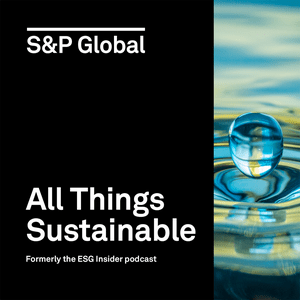
Get the free radio.net app
- Stations and podcasts to bookmark
- Stream via Wi-Fi or Bluetooth
- Supports Carplay & Android Auto
- Many other app features
Get the free radio.net app
- Stations and podcasts to bookmark
- Stream via Wi-Fi or Bluetooth
- Supports Carplay & Android Auto
- Many other app features


All Things Sustainable
Scan code,
download the app,
start listening.
download the app,
start listening.

